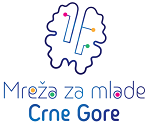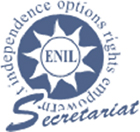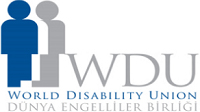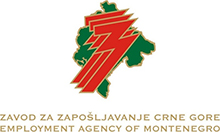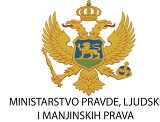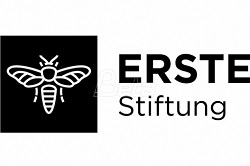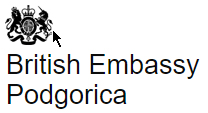Persons with disabilities should be enabled to participate in decision making and motivated to live in the community
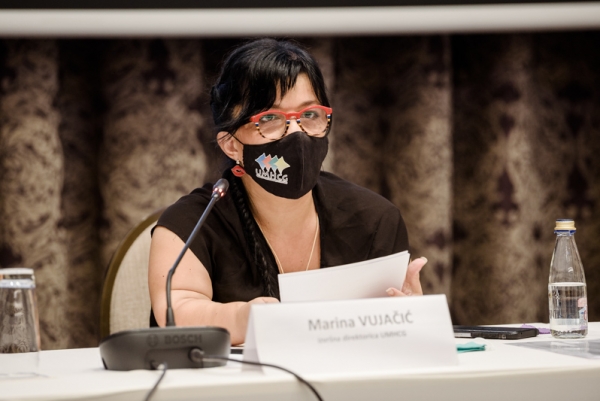
Podgorica, PR press service – Persons with disabilities should be motivated to live in the community and provided with the highest attainable standard of living in line with principles of independent living philosophy, as well as participation in decision making – this is a message from the conference by Association of Youth with Disabilities of Montenegro on the occasion of the 5th May, European Independent Living Day.
Executive Director of AYDM Marina Vujačić told that awareness level, beliefs, and conceptions of disability have a consequence in the system which is not supporting persons with disabilities who are more independent and self-aware to make decisions, while those who need additional support in order to live independently, are often institutionalized, instead of being given opportunity to live in the community and independently.
„It is important that current Ministry of Finance and Social Welfare understand that institutionalization occurs even if someone lives in his/her community, but does not have opportunities for independent living, no opportunities to go out of the „four walls“. It is important to highlight legal and factual barriers to life in the community, i.e. independent living. Limiting and discriminatory legal norms, complicated and discouraging procedures in practice and rigid structures of support often increase dependence on others. Particularly concerning is the institute of deprivation of legal capacity and the institute of extended parental rights, which, in Montenegro, is still implemented only on the basis of disability, as a personal characteristic, and on the basis of the medical-indicators-based assumption“, told Vujačić.
She highlighted that a high number of persons with disabilities are in residential institutions with no opportunities to be enabled to live in the community, without choice, assessment of needs, and individual plan of services.
„If there is an adequate approach towards persons with disabilities and if their dignity and integrity are respected on the same way as it is for all others, followed by the understanding of the state that it is obliged to sometimes take special and additional measures to overcome historical and social injustice and inequality, then in five, ten, 15, 20 years, we would be able to feel benefits of it. Life is passing too fast, we heard too many promises and we cannot live from them“ told Vujačić.
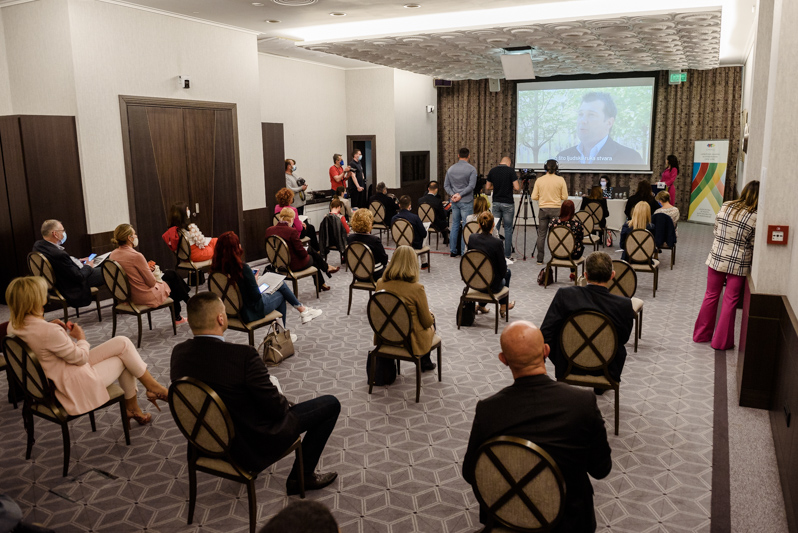
She said that persons with disabilities must be given the opportunity to take part in decision making.
„We have to be asked what and how things should be done, even when we do not know how, we have to be asked what is to be done and what do we want. If the ideal of an independent and successful life is happiness, how could we have a right to deny it to anyone?“ asked Vujačić.
Deputy Prime Minister of Montenegro Dritan Abazović said that there is certainly progress and that institutions on the local and national level in the previous period have done a bit more, compared to the last five years, and that is still not enough.
„When it comes to the state institutions, I think we all should work more. Many things are depending on the budget, but there are many things depending on the will. If we have enough will, then I think we could find resources to adapt buildings and our public institutions, to enable better inclusion, mobility and to be happy because of differences. Every individual is important and without every individual our mosaic of civic Montenegro would never be complete“, told Abazović.
The highest interest, he thinks, is to make civic Montenegro finally working, to be a community of well-being, better living standard and better inclusion.
„We can do it together. We should not remember these issues only on 5th May. Every day should be 5th May. Every day should be 9th May“ Abazović said.
He highlighted the special symbolic of the 5th May, it is close to 9th May, Europe Day, Victory Day, when we won over fascism, but there is still discrimination in our society and there are problems, maybe not conflicts, but they are definitely something we should talk about.
Head of the EU Delegation to Montenegro H. E. Oana Cristina Popa said that lack of accessibility for PWDs is frightening, but that the lack of empathy and understanding is worse.
„There is no excuse for the latter. The EU looks at the rights of persons with disabilities very carefully when measuring progress in the EU integration process of Montenegro. We acknowledged in our 2020 Annual Report that some progress was made towards the enforcement of the rights of persons with disabilities. But much more needs to be done“, Popa said.
She said that persons with disabilities continue to experience marginalization, exclusion and discrimination, most notably when it comes to accessibility of public services, and transportation, employment, health, and education, and that the COVID-19 crisis made things even worse.
„It is now time for Montenegro to step up efforts to eradicate discrimination on all fronts and especially for the most vulnerable, such as women and girls or minorities with disabilities“, Popa highlighted.
Ombudsman of Montenegro Siniša Bjeković said that it is up to the state to fulfil all obligations in front of it to make persons with disabilities feel dignified and to have a life worth living, which is directing them towards living in the community.
„Perception of persons with disabilities in laic and professional sphere considered them more as a problem, not as a resource. I am absolutely against such attitude, because in each of us lays its uniqueness, and his/her personal capacity. The state is in charge to find out what resources of every person with disability are, and, even more, how to use this resource in the best manner. It means that the state could not be inert“, highlighted Bjeković.
He thinks that independence must reflect in meeting basic living needs, communication with others, participation in public and political life.
He added that independent living implies the right to choose and the right to make mistakes.
„It is inevitable that part of a burden lays on state, but also the business sector, not only a civil sector or state sector, has its role when it comes to stimulation of persons with disabilities. Persons with disabilities could not be a resource only on the day of elections, and all political parties within their programs and promotion should pay attention to who they are addressing“, said Bjeković.
The mere fact that someone is isolated, and on the margins of the society, he thinks, additionally negatively impacts the psychological status of every person, especially persons with disabilities. Therefore, increased sensitivity and activities are necessary, because „the worst thing that could happen to you is that others make decisions instead of you“.
Bjeković told that without the active role of persons with disabilities in the creation of the relationships in the society we cannot talk about their independence.
Minister of Finance and Social Welfare Milojko Spajić announced the establishment of the Council for Rights of Persons with Disabilities as a Government’s body, adoption of the Action Plan for implementation of the recommendations by the UN Committee on the Rights of Persons with Disabilities, as well as the beginning of the project „Reform of the system of disability determination“ in cooperation with the UNDP.
„Reform of the way of disability determination is in place, in order to establish unique body – Institute for Disability Determination, which will determine disability in line with the new, unique methodology, where we will avoid that for one kind of disability we have different analyses of different bodies. At the end of this project we expect the creation of the comprehensive register of persons with disabilities“, said Spajić.
He announced the improvement of the accessibility of public institutions and centers for social work in Montenegro.
Spajić explained that for deinstitutionalization process and independent living in the community efforts of just one sector are not enough, and he thinks it requires an intersectoral approach in this area – persons with disabilities must be provided with accessibility of buildings, but also transportation, educational institutions, health care services, increased employability.
„Moving out of institutions and enabling persons with disabilities to live independently and with support is a process that should be realized thoroughly and which requires time, and precondition for successful realization of this goal is raising awareness of all citizens that every person, including persons with disabilities, has capacity and possibility to do some profession, nothing more or less than persons without disabilities. When we reach that attitude, we will be able to talk about equality and participation of all people in the community, which must be the task of all of us“, said Spajić.
The event was organized within the EU4ME project, funded by the European Union and implemented by the Secretariat General of the Government of Montenegro, as well as through the project Get Independent! implemented by AYDM and funded by the Ministry of Finance and Social Welfare through a Call for NGOs in 2020.



More news
- The Employment Agency of Montenegro continues to undermine the field of professional rehabilitation and employment of persons with disabilities through illegal actions
- THE AYDM CONDUCTED A RESEARCH ON THE ASSESSMENT OF COMPETENCIES AND EXISTING KNOWLEDGE OF PERSONS WITH PHYSICAL DISABILITIES IN THE FIELD OF DIGITAL MARKETING IN MONTENEGRO
- Portal Disability info i aktuelnosti
- AYDM ARE IMPLEMENTATING THE PROJECT DIGITAL MARKETING CAPACITY BUILDING - EMPOWERING PERSONS WITH PHYSICAL DISABILITIES FOR REMOTE WORK
- European Day on Independent Living marked in Montenegro: Right on Independent Living as Right to Freedom and Choice














